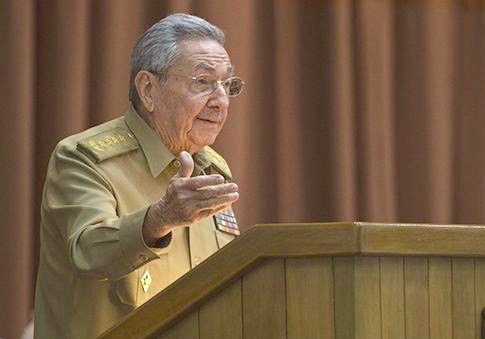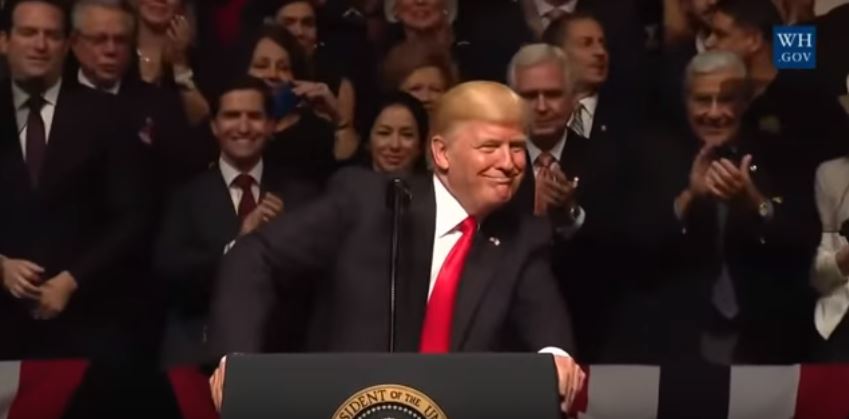
Raúl rebukes Trump but restates willingness to cooperate on equal basis
On Friday (July 14), President Raúl Castro addressed the National Assembly at the end of its Eighth Legislative Session. After reviewing the relationship between Cuba and the United States over the past 118 years, and referring to U.S. President Donald Trump’s change of attitude toward the island nation, he said the following (translation is by Progreso Weekly):
The announcements made by the current [U.S.] President last June 16 signify a step back in bilateral relations. That’s how they are seen by many persons and organizations in the United States and in the world, who overwhelmingly have expressed their sound rejection of the changes announced. That was also expressed by our youth and the student organizations, the women, workers, farmers, the Committees for the Defense of the Revolution, intellectuals and religious groups, in the name of a huge majority of the citizens of this nation.

The U.S. government has decided to intensify the blockade through the imposition of new obstacles to its business community to trade and invest in Cuba and of additional restrictions to its citizens to travel to our country, justifying such measures with an old and hostile rhetoric, typical of the Cold War, that shields itself behind an alleged preoccupation over the exercise and enjoyment by the Cuban people of human rights and democracy.
President Trump’s decisions ignore the support of broad sectors in the United States, including the majority of the Cuban émigrés, for a lifting of the blockade and the normalization of relations, and satisfy only the interests of a group of Cuban origin in South Florida, increasingly isolated and in the minority, that insists on hurting Cuba and its people because they chose to defend, at any price, their right to be free, independent and sovereign.
Today we reiterate the Revolutionary Government’s denunciation of the measures to harden the blockade and reaffirm that any strategy that attempts to destroy the Revolution, behind either coercion and pressure or recurring to subtle means, will fail.
In like manner, we reject the manipulation of the issue of human rights against Cuba, which takes much pride in the achievements made and does not need to receive lessons from the United States or anybody else. (APPLAUSE)
I wish to repeat, as I already expressed at the CELAC summit held in the Dominican Republic in January of this year, that Cuba is willing to continue to negotiate the bilateral issues pending with the United States on the basis of equality and respect for the sovereignty and independence of our country and to resume a respectful dialogue and cooperation on issues of common interest with the U.S. government.
Cuba and the United States can cooperate and coexist, respecting their differences and promoting everything that benefits both countries and peoples, but no one should expect that, to do so, Cuba will make concessions that are inherent to its sovereignty and independence — and today I add: or that it will negotiate its principles or accept conditions of any type, something we have never done in the history of the Revolution.
Regardless of what the United States government chooses to do, we shall continue to advance on the path chosen in sovereignty by our people.
[To read the entire speech, in Spanish, click here.]


